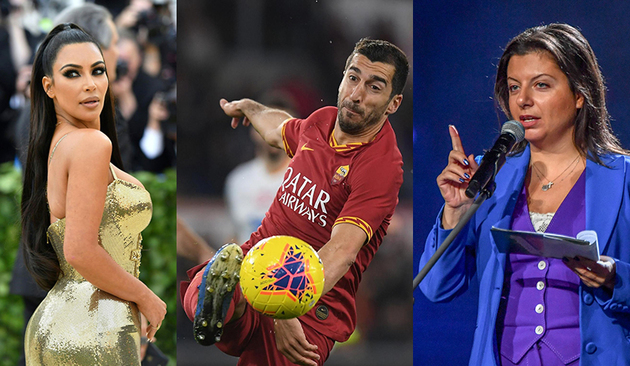Artificial filling the news space with information not related to the pressing problems of society is a favorite technique of Armenian political activists. For two years now, it is generally accepted in Armenia that a "velvet revolution" has taken place in the country, which implied a complete replacement of the previous corrupt clan system. At first it seemed that everything would change, from social policy to the most important thing - the approach to the settlement of the Karabakh conflict.
However, to this day, the military rhetoric and justification of the aggression in Karabakh remains the first indicator that unites practically all politicians in post-Soviet Armenia, including the "revolutionary" ones. In Armenia one can discuss the Karabakh war for a long time, endlessly talk about the "successes" of the army in the context of the people's confrontation. Even politicians rejected by the people, in order to maintain their presence in the information space, do not hesitate to exploit the topic of the unresolved conflict. For example, former President of Armenia Serzh Sargsyan on his Facebook page promised to organize a press conference on the events of the April 2016 escalation. Why did the former president, whose name is firmly identified with corruption and embezzlement of budgetary funds, decide to talk about what only propagandists are talking about in 2020, after the July clashes?
Like the previous government, analysts from Nikol Pashinyan's entourage instill in the public that the situation around the Karabakh problem is in many ways similar to the most bloody escalation since the signing of an indefinite ceasefire. The current Armenian prime minister did not participate in the Karabakh war, has no military merit. He simply adopts the rhetoric of the Karabakh people, demonstratively recognizing the importance of the negotiation process, but at the same time hypocritically insisting on the implementation of a number of points that are not provided for by any international agreement.
The second most visible indicator was the search for traitors. They were found 10 years ago and now. The only difference is that, for example, in 2008 they were agents of foreign NGOs, which included the current prime minister. Now, those who do not share the ideals of Pashinyan's revolution are recorded as traitors. This, for example, is the former head of the National Security Service Artur Vanetsyan, who claims that the new head of the National Security Service of Armenia Argishti Kyaramyan is trying by all means to get dirt on him, since exposing internal traitors in Armenia is considered no less a "feat" than participation in the Karabakh conflict ...
It is not customary in Armenia to discuss internal problems. You can voice it, but not discuss it in any way. For politicians, everything is extremely simple: there is no need to reduce the level of trust in the authorities, since this is fraught with destabilization in the country. It's no secret that the standard of living in Armenia is low, so there is no need to talk about it again, especially since none of the former and current administrations has ever promised a revolution in the economy. The maximum that the politicians of the period of Kocharian, Sargsyan and Pashinyan could afford was to emphasize promising directions, since Armenia inherited a predominantly Soviet economic model, diluted with the presence of oligarchs in it. The authorities shy away from any detail, preferring to summarize the work done. Even when Nikol Pashinyan talks about a hundred achievements of his government, he prefers not to dwell on specific examples, thanks to which one can trace how the well-being of people or at least certain segments of the population has improved.
For the sake of justice, it should be noted that in Armenia they talk not only about war, traitors and the desire to revive the greatness of "Great Armenia". The private successes of the representatives of the Armenian diaspora abroad, with the light hand of the Armenian media, become the most discussed topics, and they can be generalized at the national level. These include the successful game of football player Henrikh Mkhitaryan, the dubious popularity of the famous Californian Armenian Kim Kardashian, who is received at a high political level during her visits to Yerevan. Before the Pashinyan revolution, the career successes of Russian Armenians, for example, RT editor-in-chief Margarita Simonyan, were also treated with reverence.
How all this influenced and affects the well-being of the citizens of Armenia is not clear.






